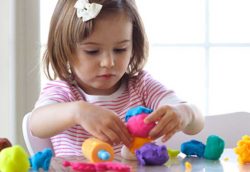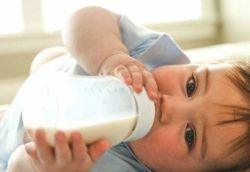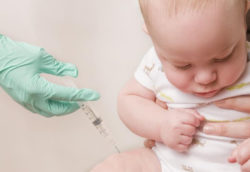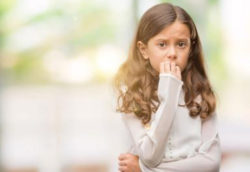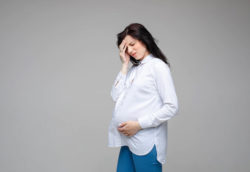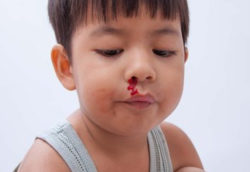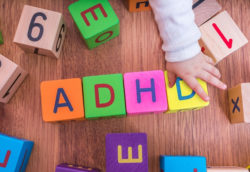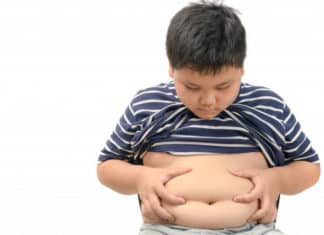How the children are affected by divorce is a huge question that you should have answers for. It is common for you to be confused about the aftermath of the divorce on the children. The effect of divorce on children brings a dynamic change in children lives.
When the parents split up or decide to stay apart, the family changes totally for the children. These changes become very painful for the children. Most parents (R) wonder about what the break-up (R) will do to their children by asking them some hard questions such as:
- Will the children understand what’s going on?
- How will they react to each parent as the family changes?
- Will they be OK with a new step-parent?
- Will they be OK if there are step-siblings?
- Will their grades in school suffer?
- Will they draw away from their friends?
- Will they suffer the emotional harm forever?
- Does the children’s age make a difference?
- Is it different for boys than for girls?
The effect of Divorce on children is a massive change in their life no matter what the age is. Witnessing loss of love between parents, having parents break up their marriage commitment, adjusting to going back and forth between two different households, and the daily absence of one parent while living with the other, all creates a great challenging environment for the children in which they live. A parental divorce is a watershed event in children’s life.
In this article, we will focus on the possible effects of divorce on children. There are many different interpretations of the consequences on children’s lives.
Effects of Divorce on Children:

1. Stress and Depression:

The impact of divorce on children is always stressful. Most children do not want their parents to separate or stay apart. Divorce also strain the parent-child relationships, which lead to loss of contact with one parent. The divorce creates economic hardships and increases the level of conflict between parents.
For all such reasons, most of the children have a tough time during the transition. Parents who do a good job in managing the stress of divorce for children are often surprised by how quickly their kids make the adjustment.
The stressors are what make divorce the most difficult situation for the children. The situation like changing schools, moving to a new home, living with a single parent are just a few of the additional stressors that make divorce difficult and hard.
The feeling or the urge of anguish and heartbreak caused by parents’ divorce can make the children slip into depression. Depression is a mental health problem, and children who witness divorce have a higher incidence of depression and social withdrawal. Researchers suggest that divorce (R) can be an important contributing factor to cases of bipolar disorder observed in children.
2. Behavioral effects of Divorce on Children:

Children of divorced or separated parents exhibit increased behavioral problems which are moreover the psychological effects of divorce on children. The marital conflict that accompanies between parents’ divorce place a great challenge for the child’s social competence at risk.
Even in intact families that have low medium levels of conflict, the children have to face fewer behavior problems than those in the high-conflict, disrupted families. The parental conflict affects the outcomes of children’s behavior problems(R), regardless of the matter parents’ marital status.
There is no statistical difference in the level of behavior problems faced or observed by the children whose parents get separated or divorced. During a divorce, the conflict between parents is often accompanied by less affection, less responsiveness, and more inclination to punish their children, which leaves their children feeling emotionally insecure and disturbed.
These children are more likely to perceive their social milieu as unpredictable and uncontrollable. Children who get engaged in fighting and stealing at school are far more likely to come from broken homes family than are of well-behaved children. Children of divorced parents (R) exhibit more behavioral problems than children from an intact family.
3. Mental Health Problem:

Divorce wreaks havoc on the psychological stability of most children. The psychological effects of divorce are persistent. Children from divorced families have more emotional and behavioral problems as well as negative feelings, and less psychological well-being than adults from intact families.
The divorce of their parents, children experiences a wide range of emotional reactions which include sadness, anger, loneliness, depression and lasts into their later phases of life. Heightened anxiety, worry, lower life satisfaction, lower self-esteem and self-confidence, fear, yearning, rejection, conflicting loyalties, and a sense of fault for their parental problems.
An analysis by David Popenoe of the National Survey of Children found that divorce was associated with a higher incidence of several mental health problems in children: depression, withdrawal from friends and family; aggressive, impulsive, or hyperactive behavior; and either behaving disruptively or withdrawing from participation in the classroom.
Parental divorce(R) may also contribute to the development of mood disorders, bipolar I disorder, dysthymia (mild chronic depression), depression, and post-traumatic stress disorder.
Divorce increases the risk of mental health issues in children and adolescents with regards to age, gender, and culture. The impacts of divorce on children may trigger an adjustment disorder in children that resolves within a month.
4. Effects Of Divorce On Future Relationship Of Children:

This is one of the long term effects of divorce on children. The Parental divorce often leads to low trust and care among children and those who casually date exhibit. The strongest effects of parental divorce on children suggest that the repercussions of parental divorce may be in place before the young adults form their own romantic relationships have occurred.
The divorce of their parents makes dating and romance more difficult for children as they reach their adulthood phase.
Children of divorced parents fear being rejected, and lack of trust frequently hinders a deepening of their relationship. The individuals whose parents divorced were more likely than individuals whose parents remained married to believe that relationships are best by infidelity and the absence of trust and care will be likely to believe that relationships should be approached with caution.
5. Divorce affect on the education of children:

This is the most negative effect of divorce on children. The psychological effects of divorce diminish a child’s interest in education and it affects academic performance. Children who experience divorce show a drastic drop in their school grades and educational career as well as performance.
It can significantly impact a child’s ability to learn at school and college. A progress in education hampers career prospects of the child as an adult, which make it difficult to have a decent and minimum socio-economic status for the divorce children lead by their parents. Children from divorced families don’t perform great academically. Studies show that kids from divorced families also score lower on achievement tests.
6. Impact of Divorce on Children through Emotional Development:

Divorce wreaks havoc on the psychological stability of mostly children. Parental divorce was only ranked as less stressful (R) than the death of a parent or close family member.
However, the psychological effects of divorce are persistent. Children from divorced families are more prone to having emotional problems and negative feelings than less psychological well-being to those of children than those from intact families.
Because of the divorce of their parents, children experience a wide range of emotional reactions such as sadness, anger, loneliness, depression, heightened anxiety,worry, lower life satisfaction, lower self-esteem , self confidence, fear, yearning, rejection, conflicting loyalties, and a sense of fault for their parents problems or issues.
7. Suicide:

In a study from Denmark, suicide (R) is another negative effect of divorce on children.
The researchers evaluated the risk factors for suicide among young children attributed to familial and socioeconomic factors of children. Among other parental factors that were related to increased risk of suicide among young people was also the parents’ divorce.
In one study led by Lizardi D, Thompson RG, Keyes K, Hasin D (2010), they found that the role of depression in the differential effect of childhood parental divorce on male and female adult offspring suicide attempt risk.
Nerv Ment Dis 198: 687-690. reported a higher incidence of depression, suicidal attempts and a higher risk of suicide among girls of divorced parents compared to boys of divorced parents, whereas a higher rate of suicide ideation among boys of divorced parents is higher.
8. Parental Alienation Syndrome:

Parental alienation syndrome is a childhood disorder that appears almost exclusively in contexts of the struggle over the issues between parents. The parental alienation phenomenon mostly occurs in the context of a custody battle in which the parents get separated from each other.
In this disorder, one parent makes a defamation campaign against the other parent. In this disorder, brain-wash exists by one parent against the other parent that creates a situation where the child makes claims against the alienated parent to contribute to the alienating parent’s defamation.
9. Impact of Divorce on Sexuality:

While the parents divorce, their children’s attitudes towards sexual behavior change. The separated Children’s approval of premarital sex, cohabitation, and divorce rises dramatically, while their endorsement of marriage and childbearing falls.
Children from divorced families are also more likely to accept that marriage is not an important factor for having children. They are more likely to have a child out of wedlock. The sexual permissiveness on the part of divorced parents significantly increases permissive attitudes and behavior in both of their children.
Children from divorced families have an earlier sexual debut than children from intact families. American and British studies repeatedly show that daughters of divorced parents will be more likely to approve of premarital sexual intercourse and teen sexual activity and are more prone to engage in early sexual intercourse.
10. Substance Abuse:

It is a negative and long term effect of divorce on children. Drugs, alcohol and other substance abuse are becoming the avenues for adolescents who vent out their frustration and anxiety level easily this way. Research has shown a higher incidence of substance abuse in teens whose parents are divorced than of the intact family.
There are other factors like the care provided by the single parent, which determine the adolescent’s tendency to have drugs and alcohol. Moreover, the probability of an adolescent succumbing to the temptation is considerably higher and greater. The Long-term substance abuse has tedious damaging effects on the well-being of the child in their later phase of life.
Divorce is a bitter pill for you and your children. But, if you have no other option, make sure your children are not affected in the middle of their life. They have a long way to go in their life and your divorce cannot be an impediment to their development of career.







